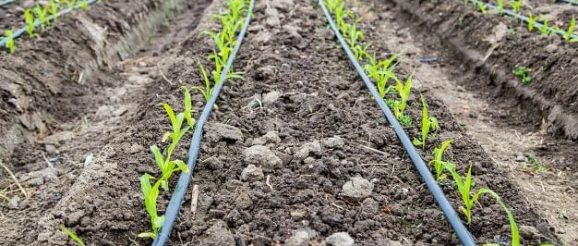Earth Day 2022: Innovation, sustainability needed in agri-ecosystem for a greener earth

The impacts of climate change are already being felt through extreme temperatures, weather variability and the shifting agri ecosystem boundaries that often result in low quality produce.
With an ever-growing global population, the need to grow more on less land has become imminent. The demands of changing food preferences and dwindling natural resources are pushing the need for sustainable and resilient agri-food systems globally.
The adoption of digital technologies has accelerated the maximisation of yields. However, the need for efficient supply chains, transparency on how food is grown and curiosity on its impact on human health have also become crucial motivators for agricultural innovation.
Transformation of food systems through innovation and technology have two perspectives – to improve productivity and enhance yields as well as the conservation of what is currently produced. Digital tech and innovation enable a focus on sustainable parameters and cultural contexts in farm practices such as local biodiversity, food, and water quality etc.
New agritech solutions are thankfully emerging to help farmers meet these needs in a sustainable manner. IoT devices, Drone and Satellite imagery, sensors to improve crop performance, GIS tools and data analytics softwares, farm and crop management systems, Machine learning and AI, and digital platforms with intuitive dashboards are enabling an agricultural technology ecosystem for climate smart agriculture. This technology ecosystem ensures an integrated approach to address interlinked challenges of food and water security and climate change while improving decision-making, increasing yield and cost efficiency, decreasing food losses, and building weather resilience.
‘The soul of India lives in its villages,’ Mahatma Gandhi said and therefore, it is our responsibility that the new age technologies are made accessible to the smallholder farmers to increase productivity and farm efficiency despite challenges of weather variability.
As new-age players look at Drones, 5G connectivity, Big Data, Artificial intelligence, Blockchains and other digital technologies to make agriculture more efficient, true success for digital sustainable technologies in India would be its adoption in small and micro farms with a buy in from all stakeholders; be it farmers – small or large, lenders, buyers and policy makers.
A resilient agricultural ecosystem saves limited resources through enhanced land and resource management, smarter use of agro-chemicals, data driven decisions and automation. It is also essential to identify risks, build climate-proof agricultural infrastructure and develop contingency plans.
While designing agricultural technology ecosystems for rural India it is essential to keep in mind the complexities of small hold farms and the need for easy scalability across diverse regions and demographics. Innovative solutions can enable farmers to plant, monitor, irrigate, fertilise or harvest their crops in a smarter way. However, it is crucial to look at ease of use and access alongside the viability of the tech in the here and now of the Indian smallholder farmers.
Sustainable practices minimize the use of resources, maximise profits and create a eco-friendly environment.
The wisdom of the Indian farmer, the technological interventions from the professional world and a deeper understanding of the ecological needs can together create a balanced future-proof outcome.
Agricultural practices that support sustainable farming methods become crucial in building a healthier, greener world.
(Ann Thomas is Corporate Communication Head, Arya.ag.)
